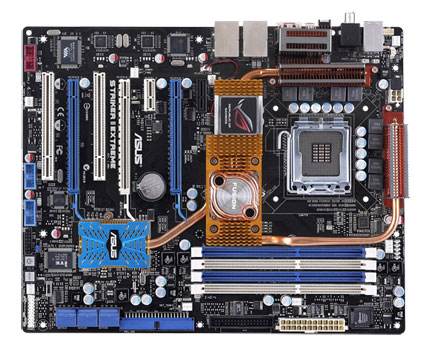Certainly, the immediate evidence would suggest such a concern is much ado about nothing. Games have been developed for touch screens: Ive compiled my list of the best games for iPad elsewhere. The fact of such games though has not been without its detractors and critics.
The usual approach is to dis such games on what seems to be the practical impracticality. To put it bluntly, they complain that touch screen games arent effective because the players fingers obstruct the view of the screen.
This may too often be true. It is though a criticism of the games designed, not the gaming potential of touch screen computers. In fact, the notion that tactile interface with the screen is problematic is itself a kind of outdated myopia. Ill suggest, on the contrary, rather than some conceptual cul-de-sac, touch screen gaming is not merely the cutting edge of gaming culture and technology, but it is a portent of human-computer interfacing of the future.
Before completely unpacking this claim, some context will be helpful. Consider the visceral pleasures of finger painting. I know many will object that serious painters use paint brushes. Fine.
Yet, we all know the joys of sticking our fingers into the paint; of using the tips of our fingers to smear, spread and shape the paint. Finger painting in a sense is almost a kind of sculpture. Kids of course notoriously love it, but even adults, given the rare occasion, if not worried about getting paint on their new dress or suit, will often be compelled to spontaneously stick in their fingers.
Contrast these pleasures to another childhood picture making medium, the Etch-n-Sketch. Of course, Im not denying it provides fun and satisfaction, too. Perhaps youll concede though it is a rather different style of pleasure: detailed in an almost obsessive-compulsive sort of fixated way. This you might agree is a world away from the raw and sensual pleasures of anyone of any age experiencing finger painting. The difference between these two experiences is immediately related to the quality of immersion. Not merely immersion in an experience, but in the medium itself.
The person finger painting, in a very real sense, is actually "in" the picture that she is painting. The painting is literally an extension of the painter and the painter an extension of the painting. If we can wrap our head about this dynamic we will understand why touch screen gaming is not only the future of gaming, but of human-computer interface. The touch screen game has the same affect of immersing the player in the game as finger painting does of immersing the painter into the painting.
The sad truth is that those who complain about the absence of buttons and joysticks, mice and keyboards, in such games make themselves just another example in a long story of those that history has left behind. They merely reveal their resentment at the sudden devaluation of the refined skills, into which they have invested so much time, energy and money, only to find their once treasured skills antiquated and obsolete.
Our technological history is littered with those who tried to mask their efforts to protect their skills investment with pretensions of principle. Photographers complaining about digital cameras, ink-stained newspaper men complaining about the internet, motion picture moguls complaining about television, big band musicians complaining about the phonograph, and horse-and-carriage operators complaining about the automobile, are just a few of so many examples. The march of progress certainly does leave its causalities. Unless though we are happy to resolve ourselves to life in a permanent past, such change is finally for the good.
And of course superior function, though real enough, isnt even the real issue. The common themes here are more immediate and accessible experiences. Think about the very first person, whoever he was, that connected speakers to his television so as to produce surround sound. Surely he didnt know it, but he was blazing a way down a path which would eventually lead to that day not so far in the future when well all experience our favorite programs as total virtual reality scenarios.
Its almost a cliche to say that we like to "lose ourselves" in our entertainment, to get "wrapped up in it." We want for a little while to leave the worries of the world behind. This deep human desire for the brief refuge of an escape into fantasy and wonder, I suspect explains why we have always pushed our entertainment technology toward the experience of immersion.
The hugely popularity of Wii illustrates the point: this sudden and mass embrace of a tactically immersive gaming experience. The immersive gaming experience of the touch screen situates the player into the game in a way reminiscent of the childhood pleasures of finger painting. Indeed, we might say that it is an essential link between those childhood pleasures of the past and the promises of our virtual reality future.
In Sci-Fi shows we see space age technology in which lights come on when given a verbal command. How much more impressive would it be though if our lights came on when we needed them, or raised their intensity when our eyes were growing tired of a task. Leading edge AI technology raises this very possibility. Immersion is the natural inclination of human-computer interface.
Seen in this context, touch screen gaming may be regarded as a transitional step into that future. Game designers who insist upon putting "consoles" on to touch screen games are being left behind by history. They are like those early film makers and recording engineers who could not see their new technologies as anything more than the means to record live performances. And being able to do that was a great accomplishment. It was of course only when the visionaries came along who could imagine cinematography and splice-editing, though, that these new technologies realized their creative and aesthetic potential.
So with game designers responding to the growing demand for games on touch screens, if they can find the organic fit with the uniquely immersive qualities of the iPad, they too can be harbingers of the future. Otherwise, theyre just lingering stragglers of the past.
About the Author:













